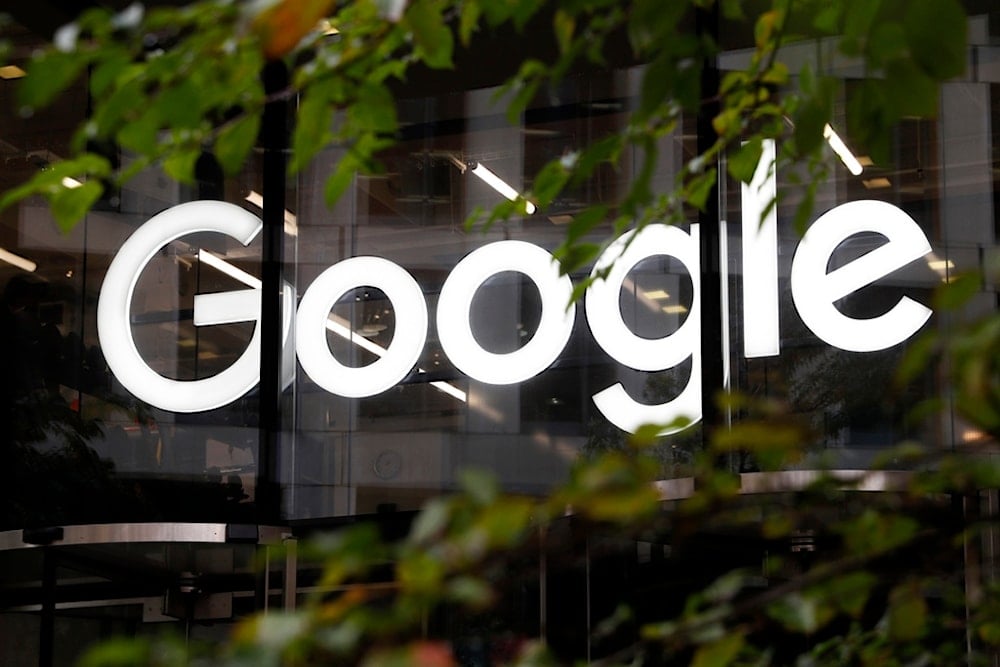Google violated law to maintain search monopoly, US Judge finds
US Federal Judge Amit Mehta rules that Google has breached antitrust laws to maintain its monopoly in the search tech industry.
-

The Google logo is displayed at their offices, November 1, 2018, in London. (AP)
Google breached antitrust laws while building its internet search empire, a federal judge found on Monday, a decision that could greatly impact how people utilize and interact with the internet.
Judge Amit Mehta ruled that Google violated section 2 of the Sherman Act, a US antitrust law, indicating that the search giant maintained a monopoly over search services and advertising.
"After having carefully considered and weighed the witness testimony and evidence, the court reaches the following conclusion: Google is a monopolist, and it has acted as one to maintain its monopoly," the ruling said.
The ruling marks one of the most significant antitrust decisions in decades, concluding a case that saw the Justice Department challenging one of the world's most valuable companies. It is also part of a larger effort in recent years by the DoJ, Federal Trade Commission, and European regulators to closely examine big tech companies for suspected monopolistic practices.
The trial, which began in September last year, was not tried with a jury and took a lengthy break while Judge Mehta deliberated on his ruling. Closing arguments concluded in the first week of May, with Mehta acknowledging the significance of the case for both Google and the public.
Google plans to appeal the decision, as stated by its president of global affairs, Kent Walker, who cited portions of Mehta's ruling describing Google's search engine as superior to its competitors. "This decision recognizes that Google offers the best search engine, but concludes that we shouldn’t be allowed to make it easily available," Walker said.
Mehta described the case's findings as "remarkable" and commended the quality of the lawyers on both sides, highlighting that millions of pages and petabytes of data were exchanged during the case's discovery phase.
US officials and attorneys also said the pro-competition ruling was a "win for the American people".
Google vs. the law
On the first day of the trial, legal representatives for the DoJ and a collection of states participating in the lawsuit accused Google of stifling competition through multi-billion-dollar agreements with corporate heavyweights like Apple and Samsung.
Kenneth Dintzer, the attorney representing the DoJ, claimed that Google expends approximately $10 billion annually on contracts designed to ensure its status as the default search engine on devices like iPhones. This practice, according to Dintzer, effectively cancels out meaningful competition and positions Google as the internet's gatekeeper.
They claimed that Google, which controls about 90% of the US search market, used this dominance to suppress competitors and increase its advertising revenue.
Judge Mehta's ruling found that these default distribution agreements gave Google an anti-competitive edge, and that Google failed to provide valid reasons for these deals. The ruling noted that Google spent over $26 billion in 2021 alone on such agreements, particularly with Apple.
The ruling did not specify the penalties Google will face, leaving uncertainty about the company's future dominance and operations in the search industry.
Google's defense argued that its search engine is simply better than its competitors, such as Microsoft's Bing, and that the contracts to make Google the default search engine did not violate antitrust laws. They also suggested that the search market includes various services like TikTok and Amazon, not just traditional search engines.
A significant issue during the trial was Google's practice of deleting internal communications, with allegations that Google intentionally erased messages that could be detrimental to its case. Google denied this, but Judge Mehta criticized the company's attorneys for poor record-keeping and failure to retain messages.
"It’s shocking to me, or surprising to me, that a company would leave it to its employees to decide when to preserve documents," the judge said during closing arguments.
Judge Mehta chose not to penalize Google for failing to preserve employee chats but expressed surprise at the company's efforts to avoid creating a paper trail for regulators and litigants.
The Justice Department initially filed its lawsuit against Google in 2020, later joining a broader legal action with attorneys general from over three dozen states and territories. Government lawyer Kenneth Dintzer emphasized that the trial was about "the future of the internet" during opening arguments.
Much of the trial occurred behind closed doors, prompting criticism from transparency advocates and tech critics who accused Google of trying to keep the case out of the public eye. Google successfully argued to restrict public access to evidence and testimony to protect trade secrets.
Google faces another antitrust lawsuit from the Justice Department later this year, focusing on its advertising practices and whether it illegally monopolized key advertising technology.

 5 Min Read
5 Min Read








